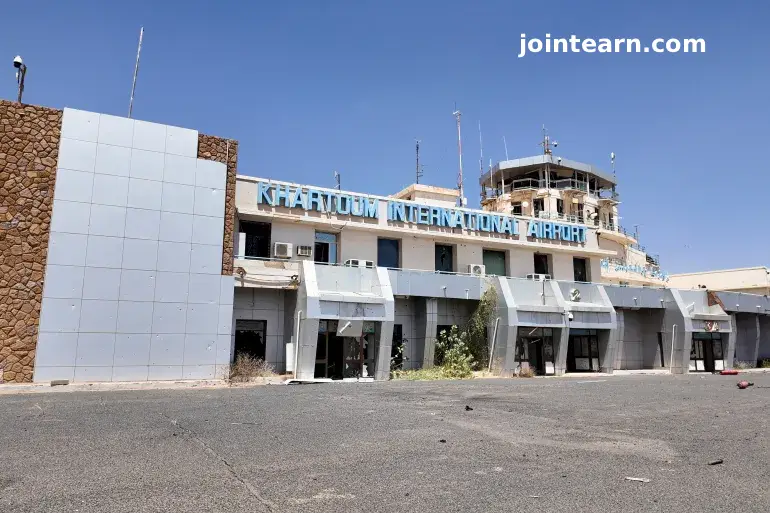
Sudan’s capital, Khartoum, has been targeted for the third consecutive day by drone strikes from the paramilitary Rapid Support Forces (RSF), just a day after the city’s main airport briefly reopened following repairs amid the ongoing civil war.
The Sudanese Armed Forces (SAF), aligned with the government, intercepted the drones on Thursday, preventing damage, a military official told the Associated Press on condition of anonymity. Neither the RSF nor the SAF immediately acknowledged the attack.
Khartoum International Airport Under Fire
Khartoum International Airport, which had been closed since the outbreak of fighting in April 2023, welcomed its first passenger flight in two years on Wednesday. The reopening, however, has now been postponed “under further notice,” according to an airport official.
Witnesses reported hearing drone activity over the city around 4 a.m. local time, followed by explosions. The renewed attacks highlight the increasing use of drones as a strategic tool by both sides in Sudan’s ongoing conflict.
Al Jazeera’s Hiba Morgan reported that the RSF is deliberately targeting key infrastructure such as the airport to destabilize the capital and assert control.
Drone Attacks Escalate Amid Civil War
Since 2023, Sudan has been embroiled in a civil war after the SAF and RSF, formerly allies, turned against each other. The fighting has devastated the country, killing tens of thousands, displacing about 12 million people, and leaving 30 million in urgent need of humanitarian assistance—making Sudan’s crisis the largest in the world.
Satellite imagery analyzed by Al Jazeera’s fact-checking agency, SANAD, shows damage at Nyala Airport in South Darfur, controlled by the RSF. Images and NASA data confirm that aircraft were hit, though neither side has provided details on the extent of the damage.
The RSF previously targeted army bases in northwest Khartoum, while the SAF has worked to intercept attacks, though drones have successfully reached some urban areas.
Humanitarian Impact
The humanitarian situation in Sudan remains dire. El-Fasher, the provincial capital of North Darfur, has been under siege for over a year, with an estimated 260,000 civilians trapped in the city. UNICEF Deputy Executive Director Ted Chaiban described conditions as “defying dignity,” warning that children face hunger, disease, and the collapse of essential services.
The International Organization for Migration and other UN agencies have called for an immediate cessation of hostilities, protection of civilians, and unhindered humanitarian access to all affected populations.
Regional and Global Implications
The renewed drone strikes demonstrate the growing role of unmanned aerial systems in modern conflicts, as paramilitary forces increasingly target strategic infrastructure such as airports, power plants, and military bases. The situation in Sudan underscores the complexity of civil wars, where urban centers and civilian infrastructure are increasingly vulnerable.
The ongoing conflict in Sudan continues to destabilize the region, hinder humanitarian relief efforts, and draw international attention to the urgent need for peace negotiations.


Leave a Reply